
Wharton's Jelly-based Regenerative Properties
Renyte is an acellular product derived from Wharton’s Jelly of the umbilical cord. Wharton’s Jelly is a gelatinous tissue that provides structural support, growth factors (GFs), and extracellular vesicles essential to fetal and maternal health.
Using proprietary technology, the scientists who process Renyte are able to extract the Wharton’s Jelly from fresh, healthy donor umbilical cords while maintaining the biological activity of soluble growth factors, including:
- EV cargo (proteins, RNA, mRNA, lipids, carbohydrates)
- Structural matrix components (fibrin and collagens)
These components are essential for tissue homeostasis, growth, and repair. Wharton’s Jelly products are available as an acellular matrix (Wharton’s Jelly Matrix) or a cellular matrix (Wharton’s Jelly Cellular).
Renyte may be the best option for those with less serious injuries or for those who are interested in gaining a more youthful appearance.
Regenerative Components found in Renyte:

The amount of growth factors, cytokines, hyaluronic acid and extracellular vesicles are higher in Wharton’s Jelly compared to other biologics. Wharton’s Jelly aids in strength, flexibility, cushioning, covering, compressibility and response to friction in the body. It also plays a vital role in reducing inflammation.
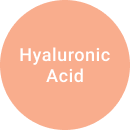
Naturally present in the body, hyaluronic acid acts as a cushion and lubricant for the joints and other tissues. Hyaluronic acid can be used for various joint disorders and aging among other conditions. It may promote healthier, more supple skin, speed up wound healing and preserve bone strength.
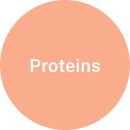
Required for the structure, function and regulation of the body’s tissues and organs, proteins help repair tissues and allow metabolic reactions to occur. Some proteins are chemical messengers between cells, tissues and organs while others provide structure and support.
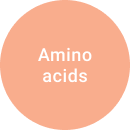
The building blocks of proteins, amino acids are vital for protein synthesis, tissue repair and nutrient absorption.

Collagens form a scaffold to provide strength and structure throughout the body delivering a platform for new tissue growth.

As the most dominant protein found in skin, elastin provides resilience and elasticity to tissues and organs. It is 1000 times more flexible than collagen and one of the body’s most enduring proteins.
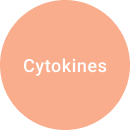
These molecules serve as messengers between cells, mediating and regulating immunity, inflammation and hematopoiesis. They stimulate the production of blood cells and provide growth and differentiation factions that function in development, tissue maintenance and repair.
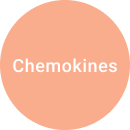
A form of cytokine that stimulates movement and plays a crucial role in immunological reactions.

Regulate cell division and cell survival to stimulate the growth of a specific tissue.
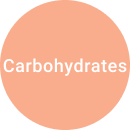
Vital in supporting life’s basic functions, carbohydrates produce and store energy, build macromolecules, extra proteins and assist in lipid metabolism.
